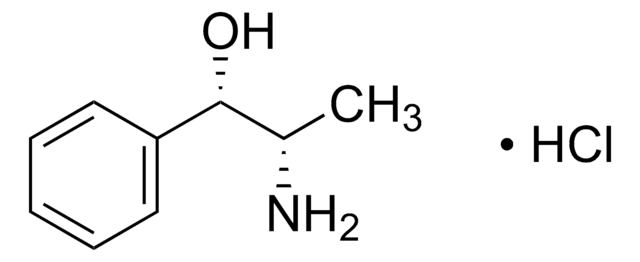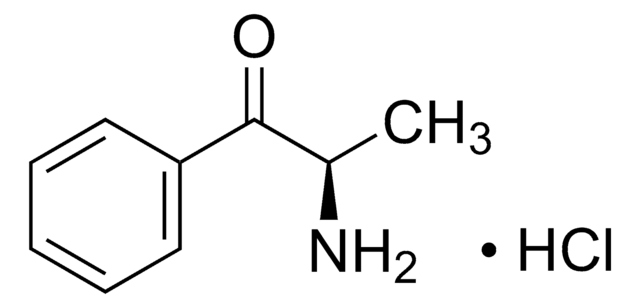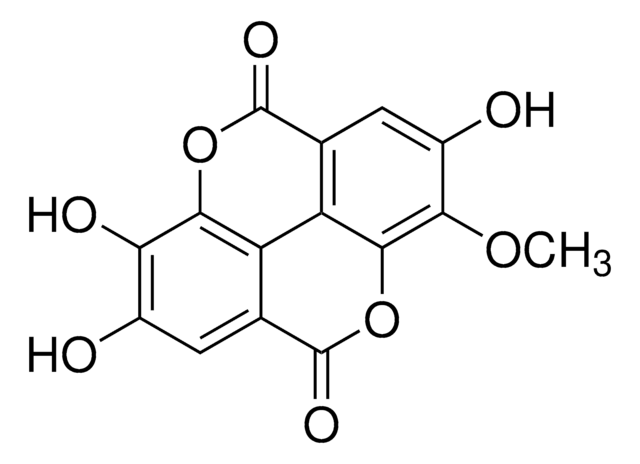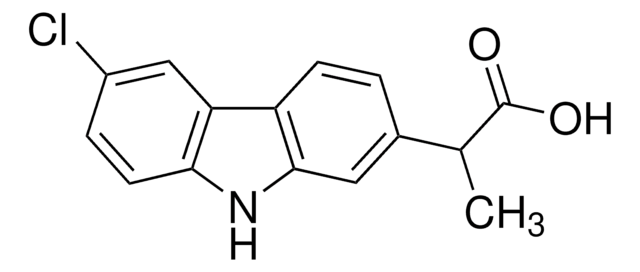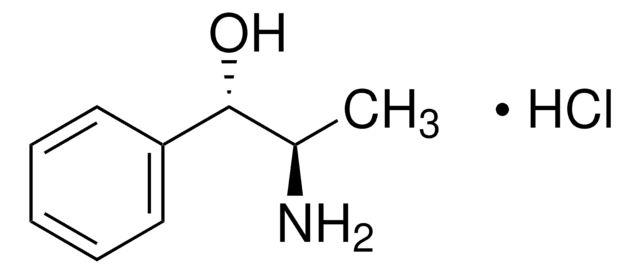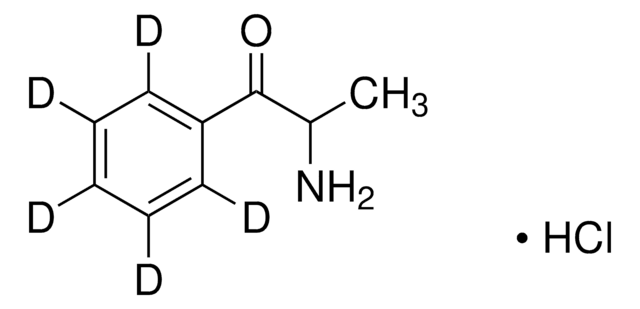C3196
S(−)-Cathinone hydrochloride
Sinónimos:
α-Aminopropiophenone hydrochloride, S(−)-2-Amino-1-phenyl-1-propanone hydrochloride
About This Item
Productos recomendados
Formulario
powder
Nivel de calidad
control farmacológico
USDEA Schedule I; Home Office Schedule 1; stupéfiant (France); kontrollierte Droge in Deutschland; regulated under CDSA - not available from Sigma-Aldrich Canada; psicótropo (Spain); Decreto Lei 15/93: Tabela IIA (Portugal)
técnicas
HPLC: suitable
gas chromatography (GC): suitable
solubilidad
H2O: soluble
ethanol: soluble
aplicaciones
forensics and toxicology
pharmaceutical (small molecule)
veterinary
temp. de almacenamiento
2-8°C
cadena SMILES
Cl.C[C@H](N)C(=O)c1ccccc1
InChI
1S/C9H11NO.ClH/c1-7(10)9(11)8-5-3-2-4-6-8;/h2-7H,10H2,1H3;1H/t7-;/m0./s1
Clave InChI
HPZCAKYHISJOIK-FJXQXJEOSA-N
Descripción general
Acciones bioquímicas o fisiológicas
Palabra de señalización
Warning
Frases de peligro
Consejos de prudencia
Clasificaciones de peligro
Acute Tox. 4 Oral - Eye Irrit. 2 - Skin Irrit. 2 - STOT SE 3
Órganos de actuación
Respiratory system
Código de clase de almacenamiento
11 - Combustible Solids
Clase de riesgo para el agua (WGK)
WGK 3
Punto de inflamabilidad (°F)
Not applicable
Punto de inflamabilidad (°C)
Not applicable
Equipo de protección personal
dust mask type N95 (US), Eyeshields, Faceshields, Gloves
Elija entre una de las versiones más recientes:
¿Ya tiene este producto?
Encuentre la documentación para los productos que ha comprado recientemente en la Biblioteca de documentos.
Nuestro equipo de científicos tiene experiencia en todas las áreas de investigación: Ciencias de la vida, Ciencia de los materiales, Síntesis química, Cromatografía, Analítica y muchas otras.
Póngase en contacto con el Servicio técnico